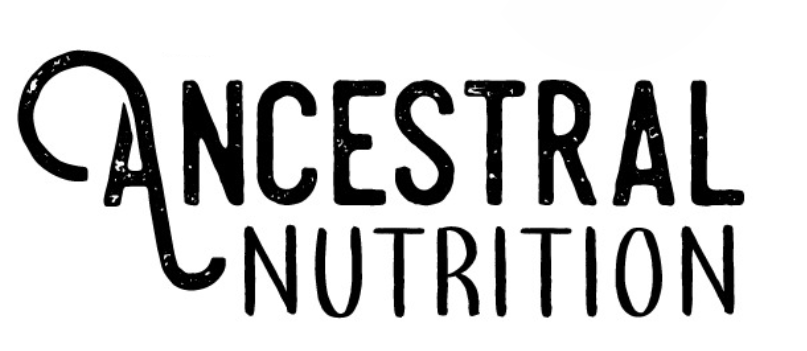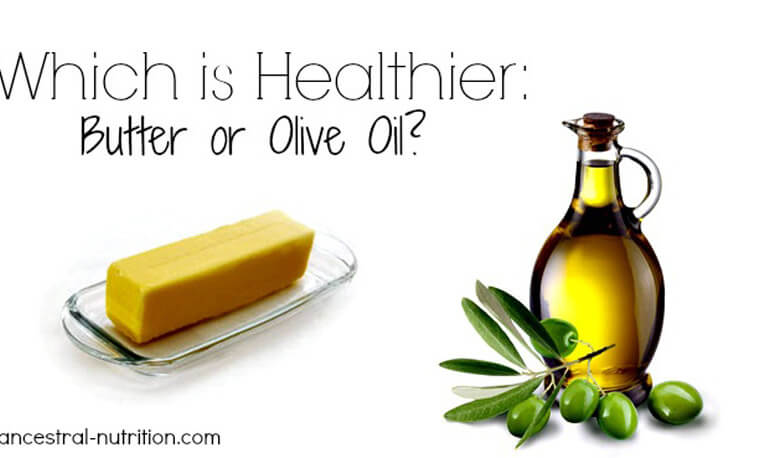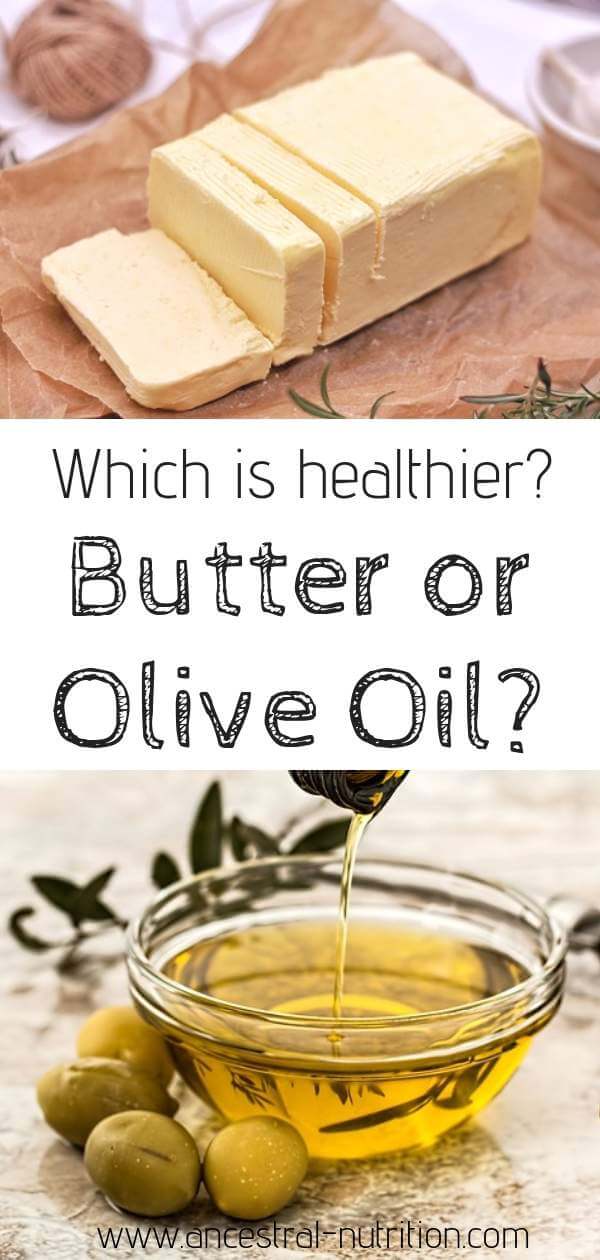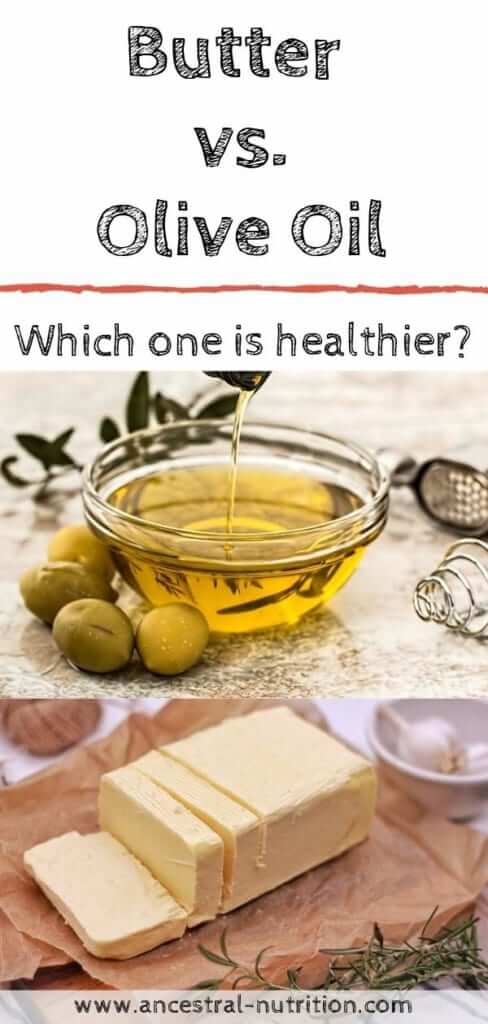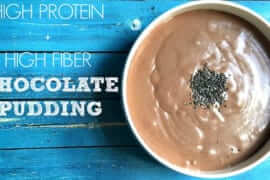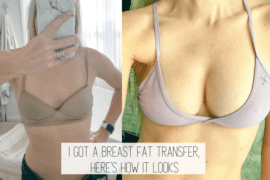Have you ever stopped and wondered whether olive oil is healthier than butter and which fat is better for cooking? There is so much wrong information out there when it comes to good and bad fats! Let me break it down for you:
Butter vs. Olive Oil – which fat is healthier?
Recently there was a debate on Homemade Mommy’s Facebook page over olive oil being healthier than butter. This is something I see a lot. People eschewing butter because they are still afraid of saturated fats and have been led to believe that vegetable oils are the healthier option.
Don’t get me wrong, olive oil is great.
I eat it on my salads just about every day. It is rich in antioxidants and I love the taste. But is it healthier than butter? Should we eat olive oil instead of butter? Should we cook with it?
Nutrient Density of Olive Oil vs. Butter
I do not count calories, or carbs, or fats. That sounds awful to me and fosters an unhealthy relationship with food.
I simply eat whole foods, when I want and how much I want. I strive to make sure that I’m eating the most nutrient-dense foods available.
Thankfully, butter is one of these foods. I wrote a post about the nutrient density of butter than you can read here. I made a chart (below) illustrating the nutrient density of butter versus olive oil:

As you can see, butter is much more nutrient dense except when it comes to vitamins E and K1, otherwise known as phylloquinone.
Butter is much higher in vitamin K2 or menaquinone. Vitamin K2 is not as easily obtained from foods as vitamin K1 is. Some of the foods richest in this very important vitamin are natto (fermented soybeans that very few people can actually stand the taste of), grass-fed cheese, pastured egg yolks, liver, and butter. From Chris Kresser, L. Ac,
A large epidemiological study from the Netherlands illustrates this point well. The researchers collected data on the vitamin K intakes of the subjects between 1990 and 1993 and measured the extent of heart disease in each subject, who had died from it and how this related to vitamin K2 intake and arterial calcification. They found that calcification of the arteries was the best predictor of heart disease. Those in the highest third of vitamin K2 intakes were 52 percent less likely to develop severe calcification of the arteries, 41 percent less likely to develop heart disease, and 57 percent less likely to die from it. (Geleijnse et al., 2004, pp. 3100-3105) However, intake of vitamin K1 had no effect on cardiovascular disease outcomes.
Vitamin K2 is also known by Activator X, as Weston A. Price called it.
It improved bone and dental health, neurological function, is anti-carcinogenic and improves the development of fetuses during pregnancy. From the Weston A. Price foundation,
Price also believed that Activator X played an important role in bone health. Butter oil concentrate cured rickets and increased serum levels of calcium and phosphorus in rats consuming a mineral-deficient diet. In a four-year-old boy who suffered from rampant tooth decay, seizures and a tendency to fracture, the combination of a large helping of this concentrate and a meal of whole wheat and whole milk rapidly resolved each of these symptoms.
and
Vitamin K2‘s ability to protect us from heart disease is much more clearly established. Research is in fact rapidly redefining heart disease largely as a deficiency of this vitamin. While it is most clearly established that vitamin K2 deficiency causes calcification of the cardiovascular system, vitamin K2 appears to protect against the inflammation and accumulation of lipids and white blood cells that characterize atherosclerosis as well.
Clearly, vitamin K2 is extremely healthy and we should make more of an effort to consume it. Thankfully, butter is rich in this vital nutrient. Butter is also richer in true vitamin A (retinol) as well as vitamin D.
The Fat Breakdown
Butter is mostly made up of heart-healthy saturated fat and is low in polyunsaturated fat, while olive oil is mostly monounsaturated fat and has a higher PUFA content.
Saturated fats are extremely healthy, while polyunsaturated fats are the undesirable fats we should avoid.
Polyunsaturated fats are higher in omega-6 fatty acids that cause inflammation (find out more about inflammation here). Butter has a more desirable omega-3 to omega-6 fatty acid ratio.
Which Fat Is Safe To Cook With – Olive Oil or Butter?
You should eat olive oil raw.
Olive oil is not heat-stable. Butter is the much better option to cook with or ghee as it has a higher smoke point. While butter is safe to heat, olive oil easily oxidizes at higher temperatures.
Both oils are healthy oils. One is indeed more nutrient dense, but both are safe to consume. Make sure you’re eating organic olive oil that is free from cost-cutting cheap oils.
There is no need to give up butter because you should be eating more of it!
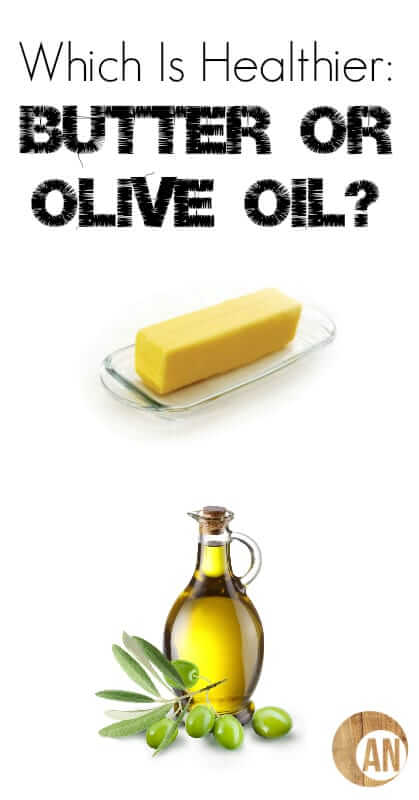
Sources:
http://www.westonaprice.org/fat-soluble-activators/x-factor-is-vitamin-k2
http://chriskresser.com/vitamin-k2-the-missing-nutrient
